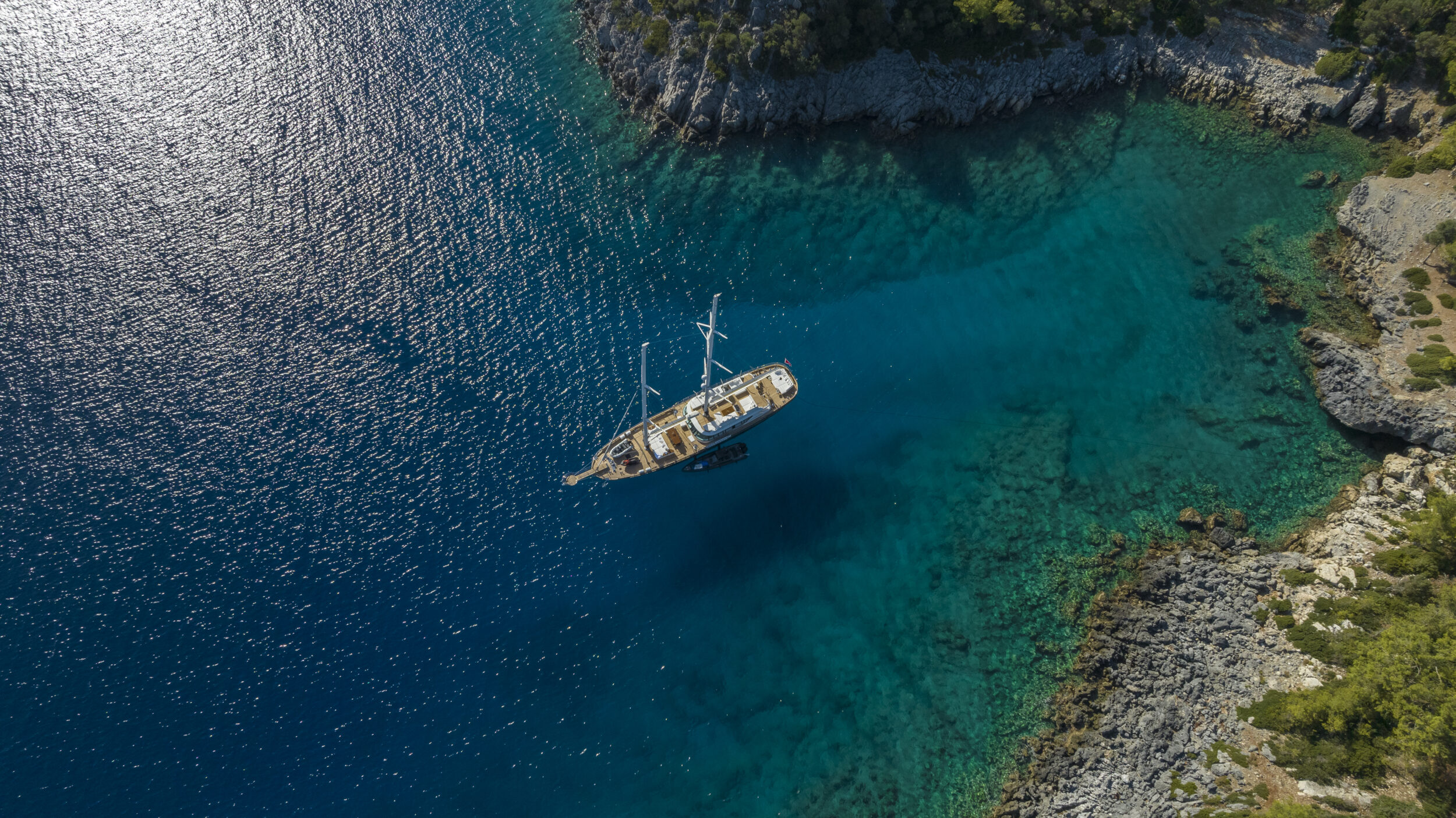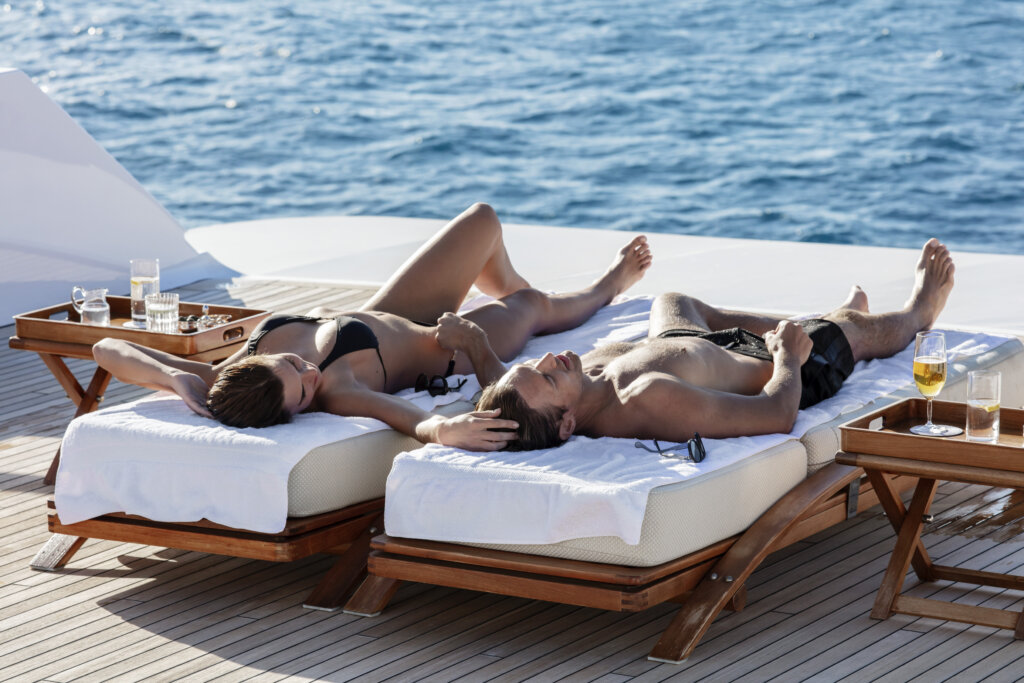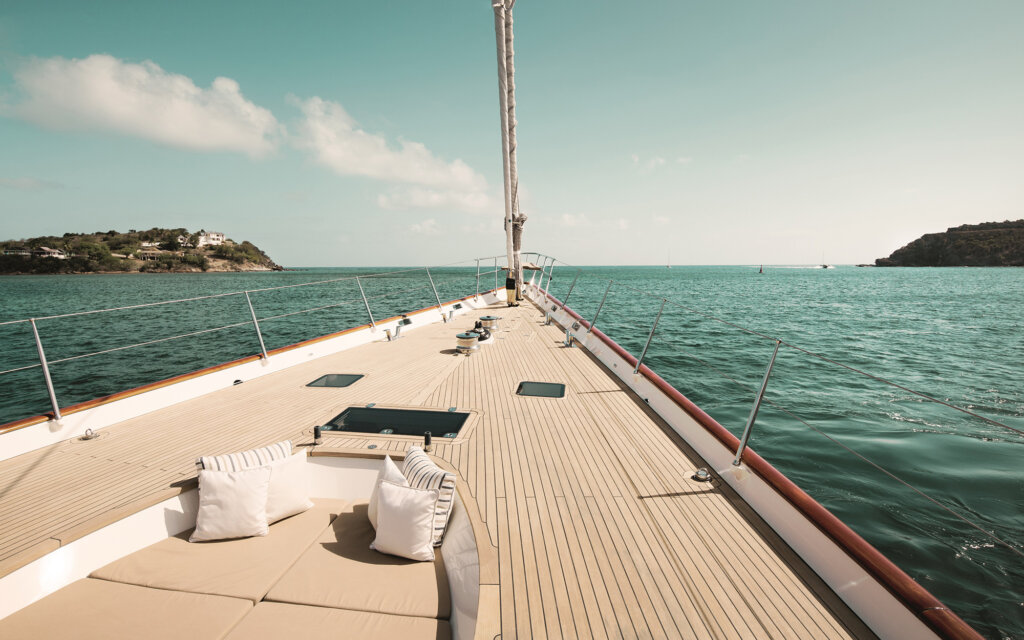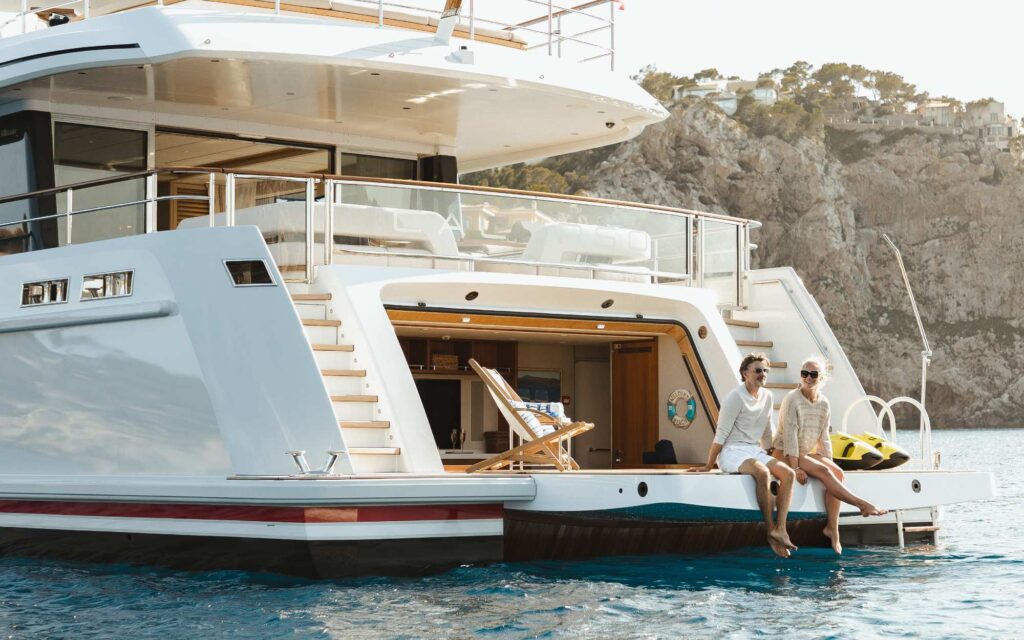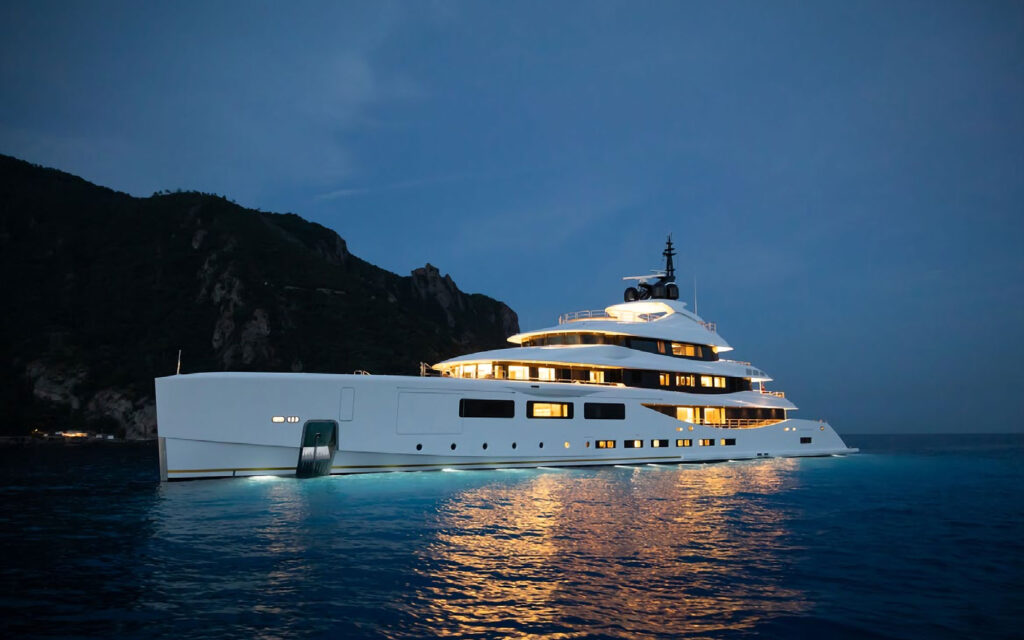What's already been done and where is the future likely to take us as we move towards a more sustainable approach to yachting?
Climate change has been a topic at the forefront of conversation in all areas of life for some time now, and with pressure mounting on all industries to do more to reduce their impact on the environment, the yachting industry is no exception. Here we uncover what’s already been done, and where the future is likely to take us as we move towards a more sustainable approach to yachting.
Sustainability and environmental protection in yachting is far more than a recent trend. From as early as 1973, yachts and ships have had to comply with a multitude of environmental standards set by the International Maritime Organisation (IMO).
Ocean Independence offers effortless and quality services to ensure all the yachts we manage are built, operated, and refitted to meet, and in some cases go above and beyond, the IMO’s environmental standards for shipping.
Although yachts below a certain size are exempt from many of the IMO’s environmental regulations, they still have to meet similar standards. Combine this with the myriad innovative sustainable technologies currently in development, and the yachting industry is in full swing for a sustainable future.
Background to IMO and MARPOL
In 1973 the IMO introduced the International Convention for the Prevention of Pollution from ships (MARPOL). Revised in 1978, and 1997 the convention held each vessel to strict regulations for the use and accidental discharge of; oil, noxious or harmful substances, sewage, and garbage, to prevent pollution of the seas by ships and yachts of considerable size.
To further reduce all forms of environmental impact from shipping, in 2005 IMO MARPOL Annex VI aimed to prevent air pollution from ships.
The positive impact these regulations have had on limiting ship and yacht pollution over the years cannot be understated. Currently, 175 governments are parties to MARPOL and almost all other IMO conventions. Representing more than 99% of the world’s shipping tonnage, these regulations have been the backbone of sustainability in yachting since they were introduced.
OI Management’s Involvement in Sustainable Yachting
At Ocean Independence, we pride ourselves on working in line with all IMO and other regulations for our yachts under management. But, with our passion for yachting and wish for future generations to enjoy the yachting experience, we strive to go above and beyond sustainability regulations and aim to offer more accessible solutions to sustainable yachting.
In 2012 we collaborated with Lloyds Register and the shipyard AMELS BV to deliver the first large yacht worldwide with a Green Passport. Requiring the builder to put together a highly detailed list identifying and locating all the materials that had been used in the yacht’s construction for recycling purposes, the yacht was truly the first of its kind.
But, our commitment to making yachting a more sustainable industry didn’t stop there. Our expertise in yachting sustainability and compliance have led us to make great progress in:
- The lifecycle management of yachts. All larger (over 500GT) yachts in our management fleet must now carry an inventory of hazardous materials to ensure the proper recycling of all materials used in a yacht’s construction and operation. While less of a problem for new vessels, for older yachts Ocean Management is responsible for overseeing the investigation and sampling of all the materials on board.
- The green effect of dynamic positioning. An innovative technological development in yachting, it enables yachts to hold their position without dropping their anchor and damaging the delicate seabed and marine ecosystems. 2023 will see the delivery of the first yacht managed by Ocean Independence to include this amazing tech.
- Sustainable refits of classic yachts. We have carried out In-depth research into converting classic yachts to state-of-the-art propulsion systems. In 2020 we began working on a project to rebuild a beautiful classic yacht with battery hybrid propulsion to enable silent, emissions-free cruising, while still maintaining the original classic looks.
- Carbon offsetting all the travel of our management Team’s global travel.
Whether it’s managing a new build, refit, or day to day operation, with your yacht under management you will spend less time worrying about IMO regulations and your impact on the environment, and more time enjoying life on board.
Other Regulations and Requirements
From regulations preventing the use of toxic antifouling (underwater paints), and the Nairobi Convention which ensures the removal of shipwrecks should the environment be at risk, to the mandatory ship energy efficiency index and management plans introduced to reduce emissions. The international community has introduced a number of additional requirements.
Since 2020, the Hong Kong convention has detailed that yachts and ships greater than 500 gross tons must carry lists of cargo and an inventory of hazardous materials and maintain this information throughout the lifetime of the vessel to ensure safe eventual recycling.
With some cruising grounds particularly vulnerable to the effects of marine pollution or of great cultural significance, there are now some special protection areas with even stricter requirements than the standard IMO conventions.
While flag states such as the USA and some member states of the EU have stipulated tighter regulations, UNESCO has also identified world heritage areas such as the beautiful and sensitive Geirangerfjord, where a zero-emission scheme will apply from 2026.
However, such efforts have mostly escaped the attention of the public. With much more achieved to address environmental issues than is widely known, the yachting industry’s regulatory framework is complex, but steps have certainly been taken to reduce its impact on the environment.

Port State Inspections
To reduce both accidental and operational pollution of the marine environment – when large yachts enter their waters, flag and port states carry out vessel inspections. With the aim of ensuring each vessel is maintained and operated in compliance with the required IMO regulations, serious penalties can be expected if inspections are failed.
While yachts with serious defects can be detained, flag states unable to control their fleets in accordance with international conventions can also be blacklisted, and managers of yachts not in compliance can be put out of business.
To avoid such cases, our experienced management Team is well equipped to ensure your yacht is in total compliance and passes these inspections no matter which port you decide to visit next.
Future Technologies
Although rules and regulations are helping to reduce yachting’s impact on the environment, to become truly sustainable, the industry has taken on the challenge of developing environmentally friendly energy concepts.
Whilst photovoltaic cells are a seemingly rational solution, their capacity is still limited. But some yacht builders are pushing ahead. For example, the renowned catamaran builders SUNREEF are already integrating solar panels into the hull sides and bimini tops of their environmentally friendly yachts. They are wholeheartedly setting their sights on solar energy as part of the future of clean yachting.
Various other innovative shipyards are also looking towards hybrid systems, fuel cells, or even methanol as a future energy source for yachts. With some yachts already built ready to be converted from diesel to methanol once the technology catches up, a significant development in the race to find efficient solutions to reduce our impact on the environment, without eye-watering costs, could be accessible in the not-so-distant future.
Most likely the future of low emission yachting will be in the combination of all the above, but with the infrastructure ashore to support these new technologies still in its infancy, it seems there is no golden bullet for now.

Mariners don’t need to look far to find a sustainable way to cross the oceans. Sails have propelled ships around the globe for centuries without any other means of propulsion, and we are beginning to see sails become more popular again on large yachts. But, with limited speed and dependence on the weather, sailing is not for all of us. With many alternative solutions under development though, the good news is yachting is here to stay.
So, if an Eco new build or a sustainable refit is an attractive proposition for you, our knowledgeable broker and management teams are the ideal candidates to guide you through the process of deciding exactly how to get you yachting sustainably.
In the meantime, please contact our outstanding Team of Marine Engineers, Ocean Mariners, and Naval Architects, should you be eager to find out more about how to make your current or next yacht as sustainable as possible.
